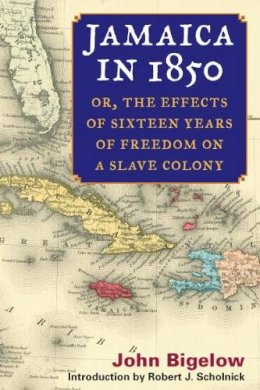
Jamaica in 1850: or, The Effects of Sixteen Years of Freedom on a Slave Colony
John Bigelow
A reporter's firsthand portrait of formerly enslaved Jamaicans in the years after emancipation
John Bigelow’s Jamaica in 1850 provided an important document in the antislavery movement in the United States and Great Britain. Jamaica’s economy had collapsed after the 1838 emancipation. American supporters of enslavement used the Jamaican example to argue that abolition at home would unleash economic and social chaos. Bigelow’s vivid eyewitness reporting undermined that widely held view by proving Jamaica’s problems originated in the incompetence of absentee white planters and an obsolete colonial system. As Bigelow showed, many once-enslaved Jamaicans had in fact become successful small-scale landowners in the twelve years after emancipation while the large plantations languished.
Product Details
About John Bigelow
Reviews for Jamaica in 1850: or, The Effects of Sixteen Years of Freedom on a Slave Colony
Journal of African American History "Jamaica in 1850 is easy to read, absorbing and most enlightening. . . . [and] considered a brilliant expression of [Bigelow's] commitment to freedom, democracy and racial equality."
Sunday Gleaner "An insightful firsthand account of postslavery Jamaica in 1850."
New West Indian Guide
